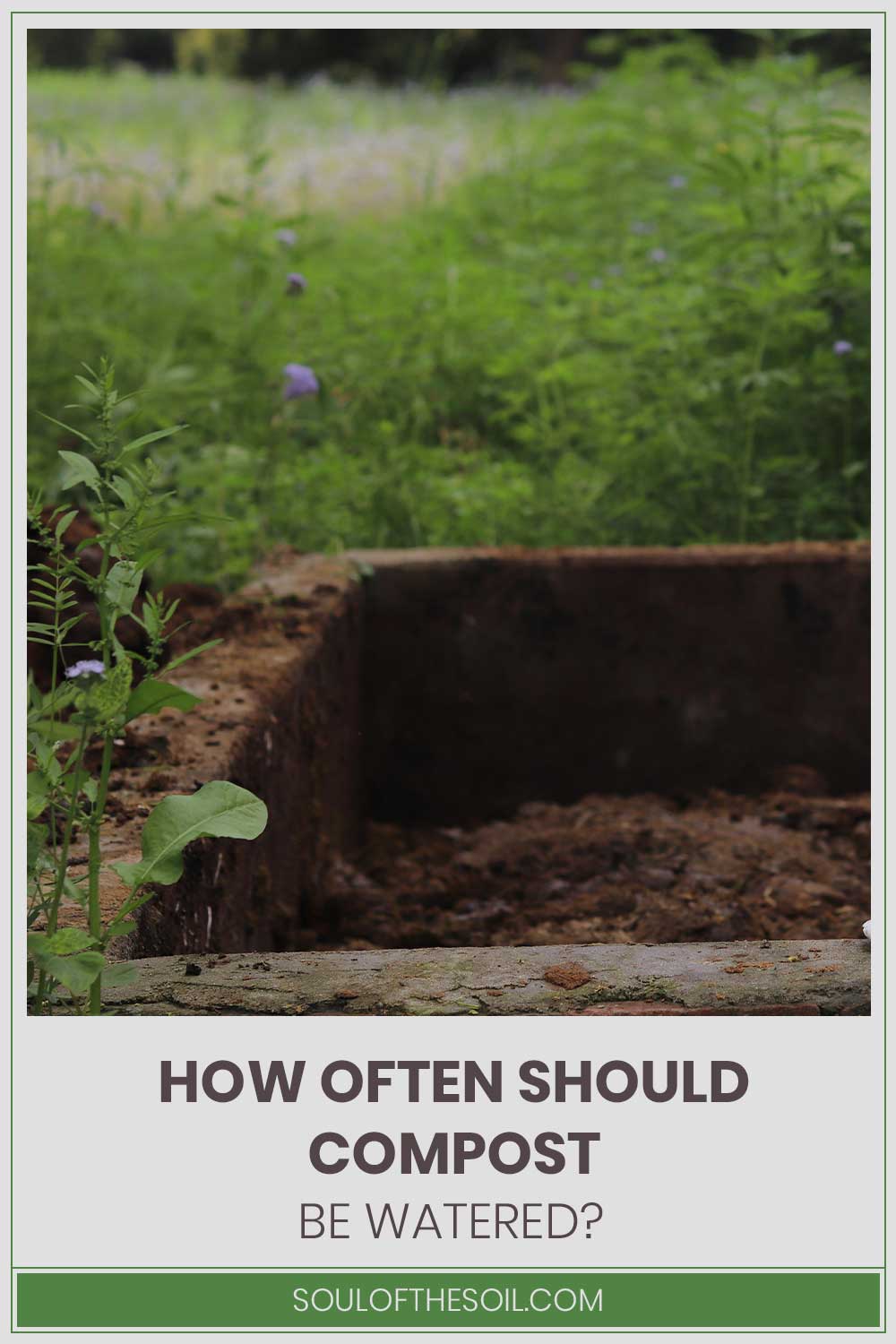How Often Should Compost Be Watered?
We may earn commissions for purchases made through links on our site. Learn more on our about us page.
There is a certain recipe for healthy compost, much of which comes from water saturation within the mixture. To put a technical number to it, a compost mix should be around forty to sixty percent water.
Therefore if any watering is to be had, it will be to balance the mixture or add much-needed moisture to generate decomposition and provide a solution for other chemical reactions to occur.
Be sure to check on hot, dry periods for water levels before they drop below forty percent, add water back up to the sixty percent mark, and continue checking regularly.

How Wet Should You Keep Your Compost?
In all chemical decomposition, there needs to be a solution for the material to be able to break down and for nitrogen to break bonds down into simpler forms.
That is why it is recommended to keep the water level in the mixture to a forty to sixty percent mark, as mentioned above, for the optimal composting environment.
There are some that stand by a light daily watering, which will keep the pile moist and consistently replenished with water.
However, this method will risk oversaturating the compost, slowing decomposition, and potentially causing other unnecessary issues.
There must be enough moisture for nitrogen to get into the carbon material and turn it into nutrient-rich soil.
Can you Overwater Compost?
The problem with over-saturating compost is the disposition of the good bacteria and microorganisms with the stinky and anaerobic bacteria. If your compost is too wet, allow air to pass through it and any sunlight to dry the pile to a degree.
If possible, remember to build your compost in a dry and shady spot near a water source. Also, avoid daily watering schedules, unless light, to avoid overwatering and the complications that come with it.
Too much water will not allow the organic material to decompose into usable nutrient-rich soil, which is why overwatering is a major issue.
Does Water Speed up Compost?
Water will not speed up compost; more like it provides a solution for chemical decomposition to take place in.
It provides an environment for iron oxides, nitrogen, and carbon materials to blend naturally and return to a soil form with the help of microorganisms and insects that live in moist environments.
There is also a temperature regulation element that comes with having water as a base, or at least when half of the mixture is made up of H2O, because of the immense amount of energy required to change water to even a single degree.
Is it Okay if the Compost gets Rained on?
As mentioned in the article earlier, there is going to be a certain amount of water that should be allowed to enter into the compost mixture, including the rainwater.
If your pile is on the drier side, say forty percent water content, leaving the lid open during the rainstorm could be beneficial.
On the other hand, there will be times when the water levels are just right and the compost owner has to close the lid or cover their compost to prevent over-saturation. The safest play is to keep your compost out of the rain with a form of covering.
Should You Turn the Compost Every Day?
There will be very different opinions and stances on whether a person should turn the compost daily or not at all. The fact is that nearly all methods will work. The difference between them will be the speed at which the carbon matter is turned into ground soil.
Studies indicate that turning the compost too much will, in effect, remove nutrients, nitrogen, and organic matter if done too many times quickly.
Therefore, it would be safe to say that it would be advised against turning the compost daily, which risks losing critical elements needed for bio decomposition.
Final Thoughts on How often should Compost be Watered
When it comes to having adequate compost comes diligence and daily work. This does not mean that every day there needs to be additional water added, or the pile turned over.
Most days will be as simple as checking to see if the moisture levels are adequate and adding material.
Remember to keep the water percentage levels in the forties to sixty percent range, and this is in order to keep the compost in an environment suitable for microorganisms to collect and digest the material.
Also, consider adding worms and other insects to help with conversion; experts agree they help create richer soils.



Leave a Reply
You must be logged in to post a comment.